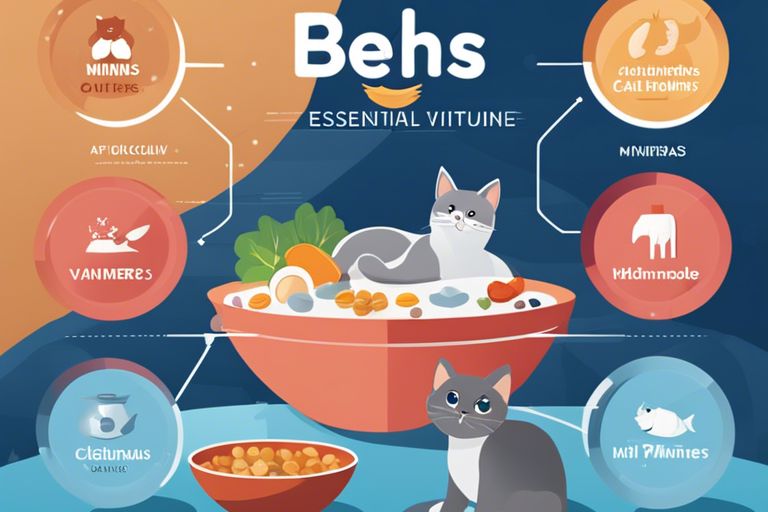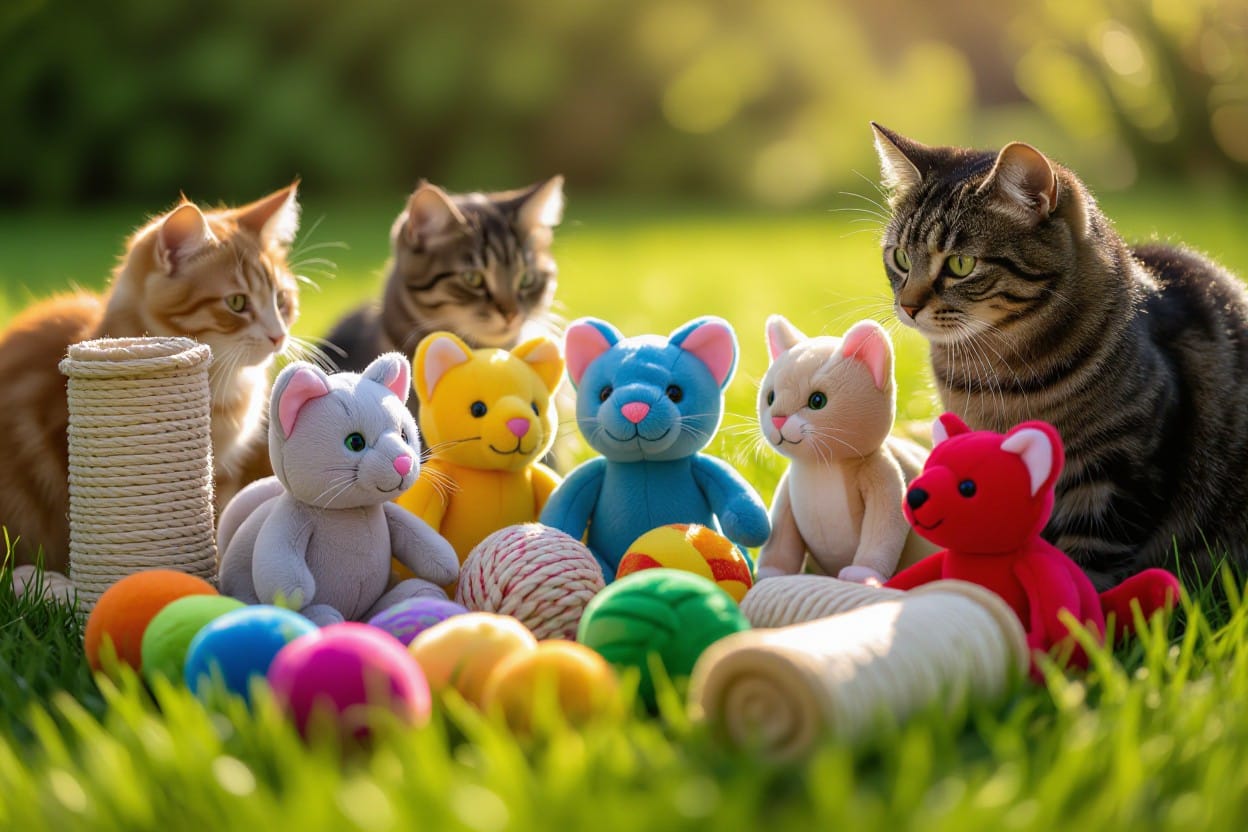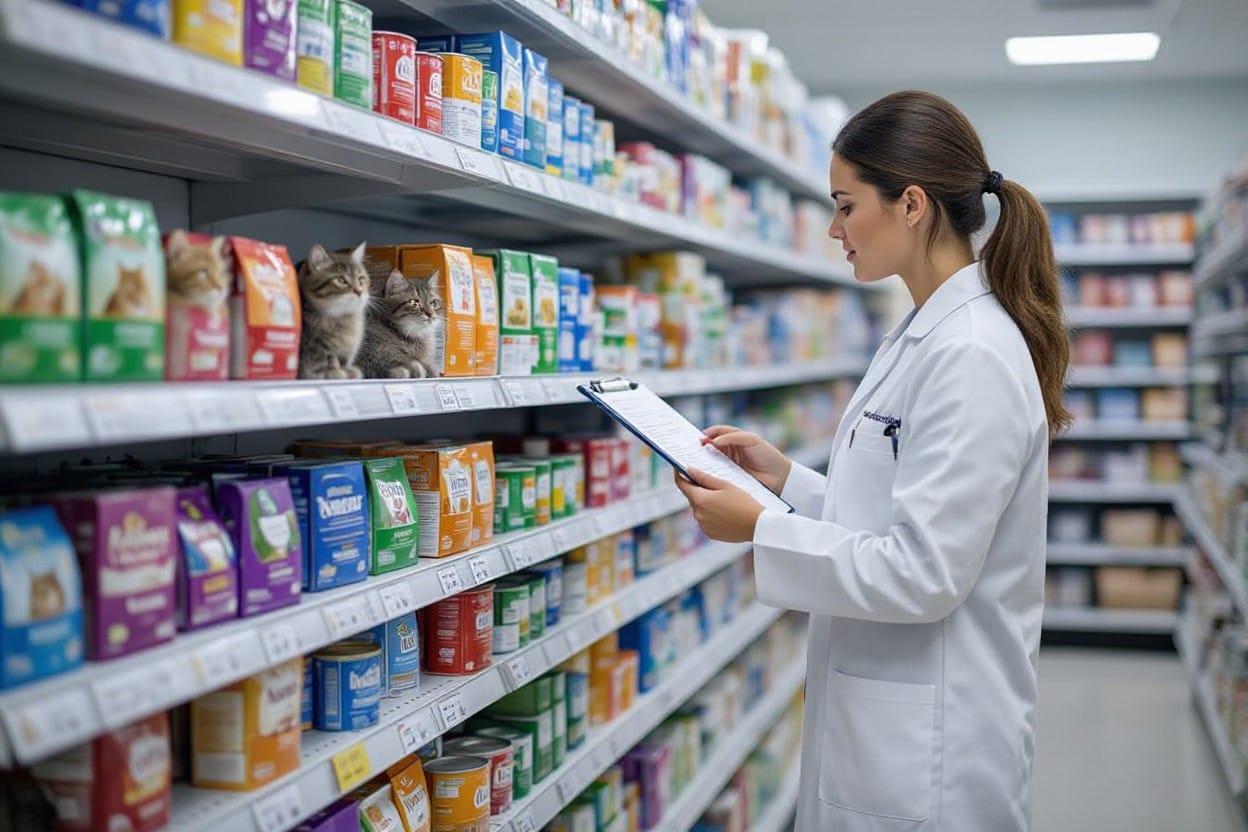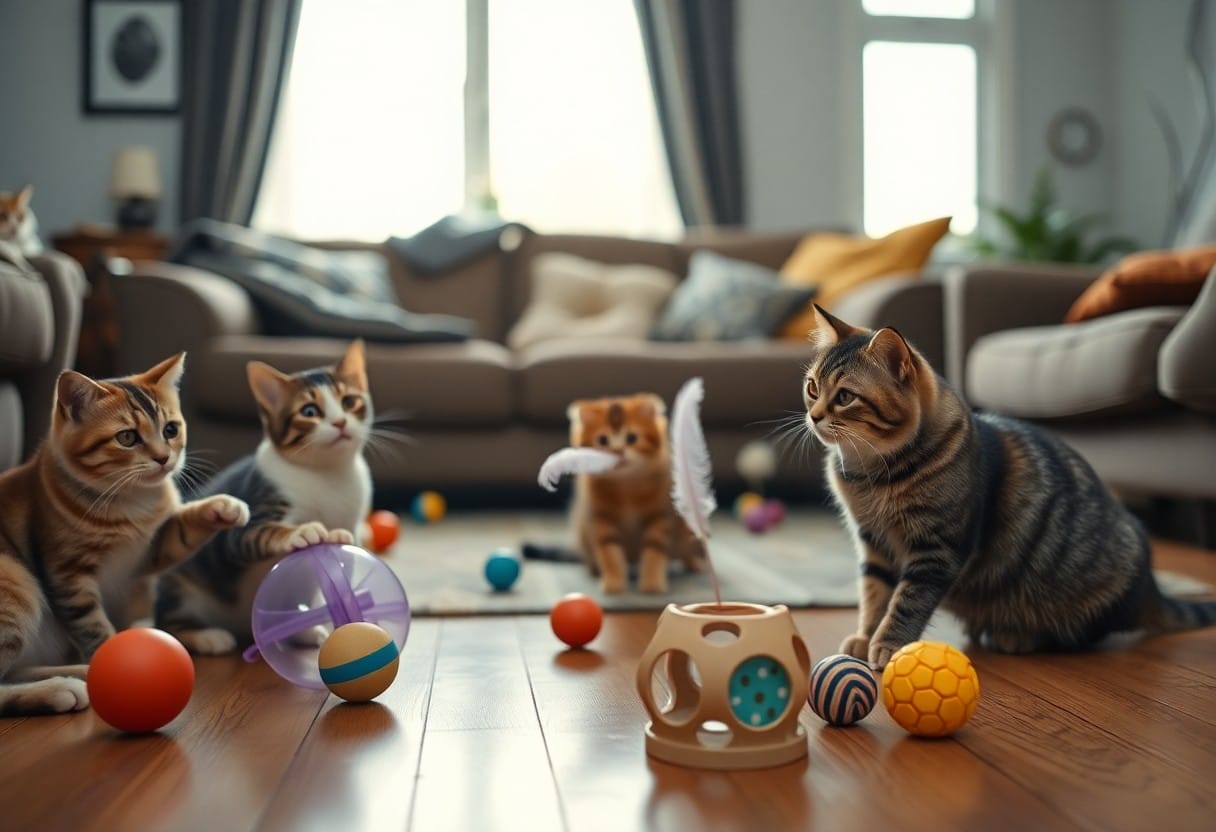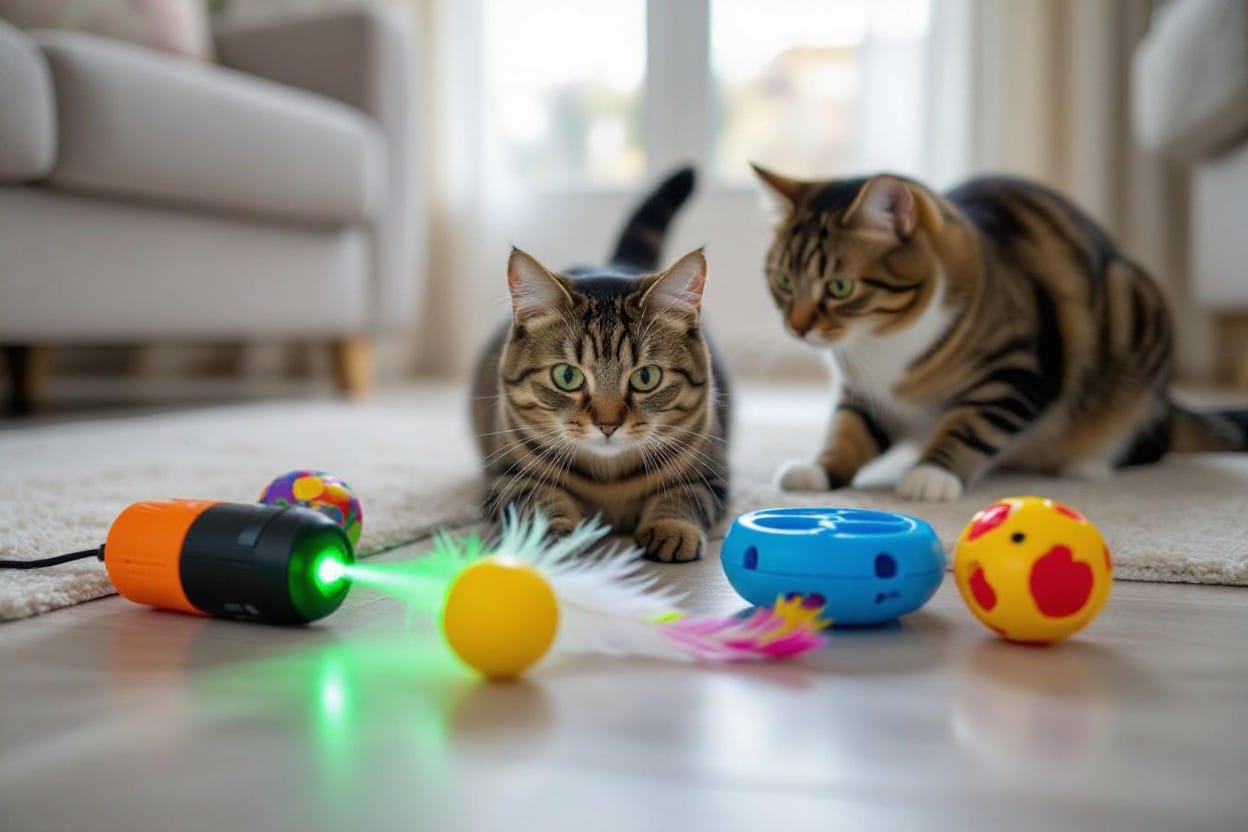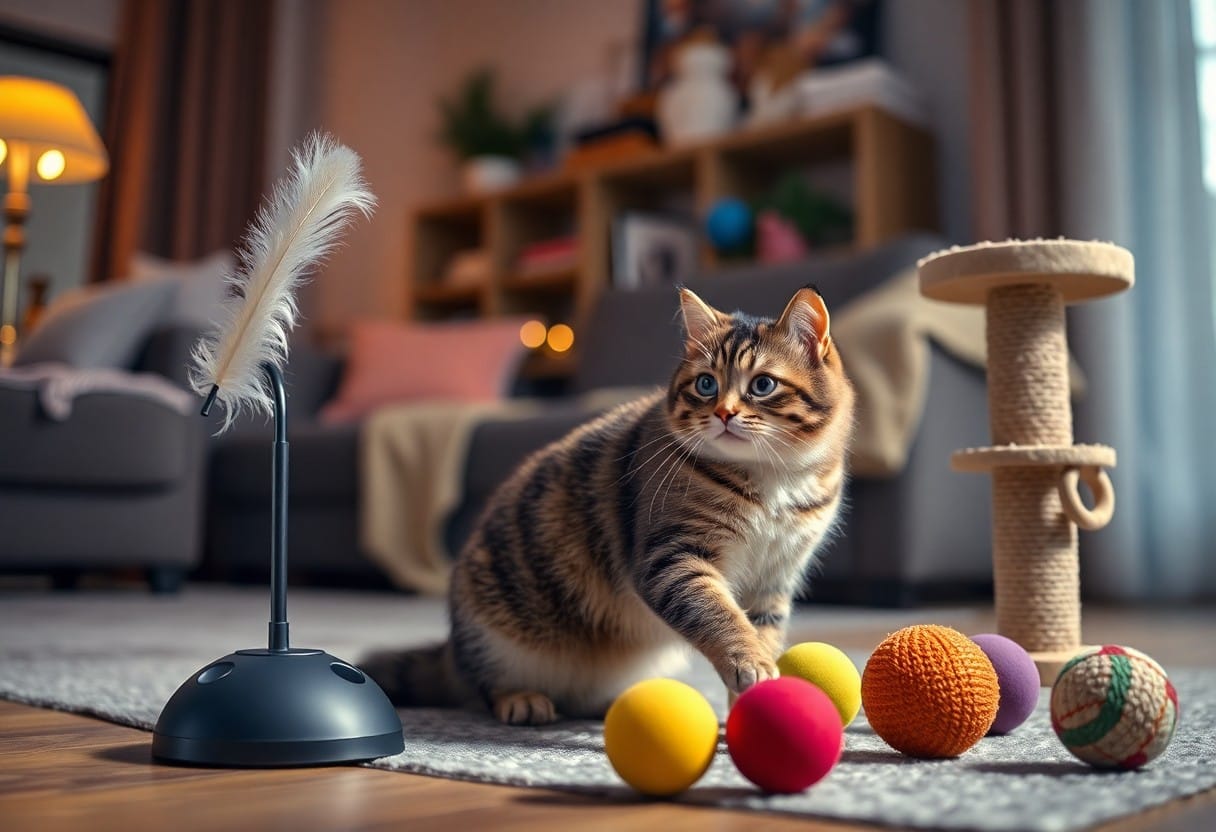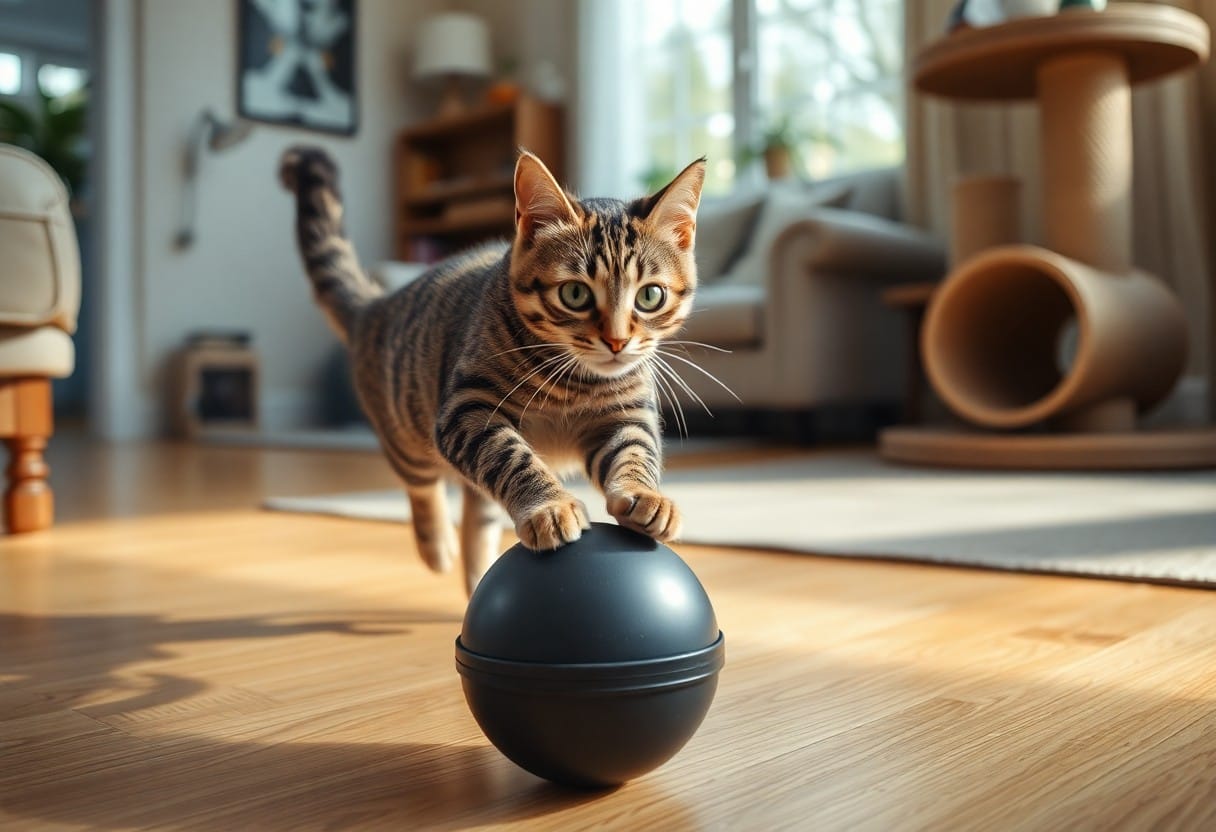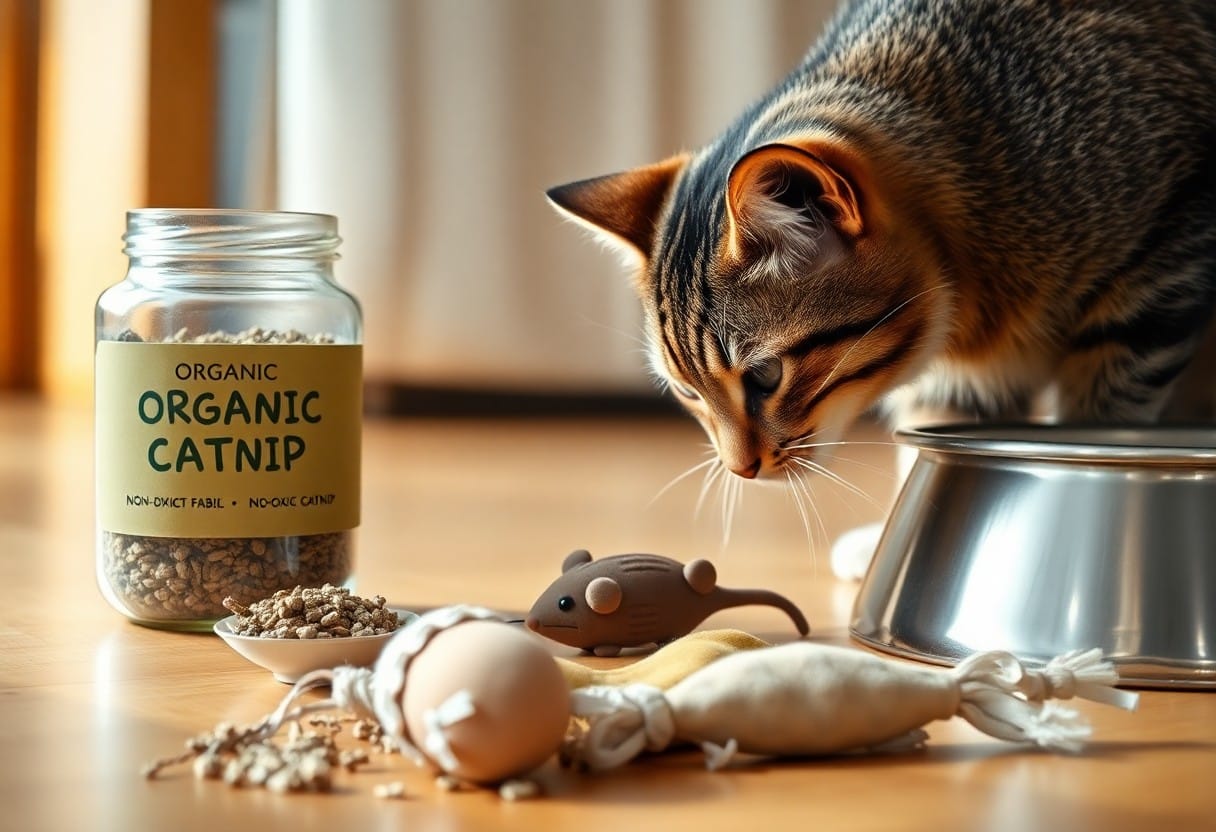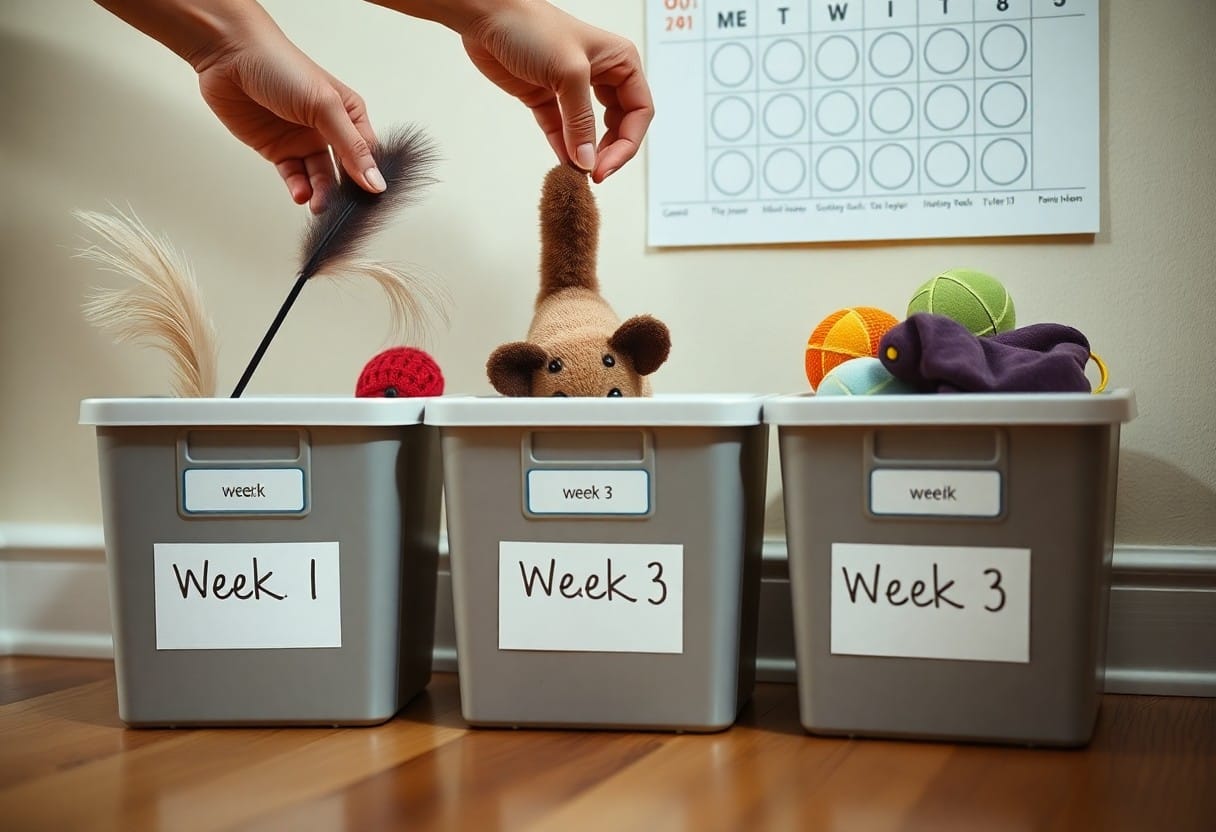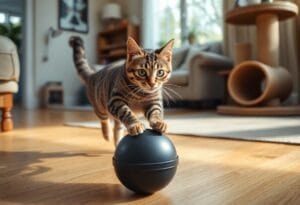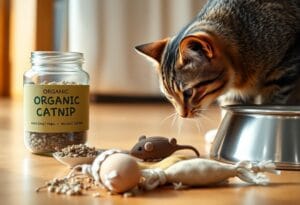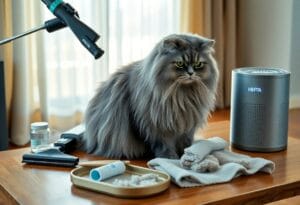There’s a vital aspect of ensuring your feline companion stays healthy and thriving – their diet. Understanding the key vitamins and minerals crucial for your cat’s well-being is vital for providing them with a balanced and nutritious diet. From vitamin A to taurine, each nutrient plays a significant role in supporting your cat’s overall health and longevity. Let’s probe into the vital vitamins and minerals that your cat needs in their daily diet to ensure they lead a happy and healthy life.
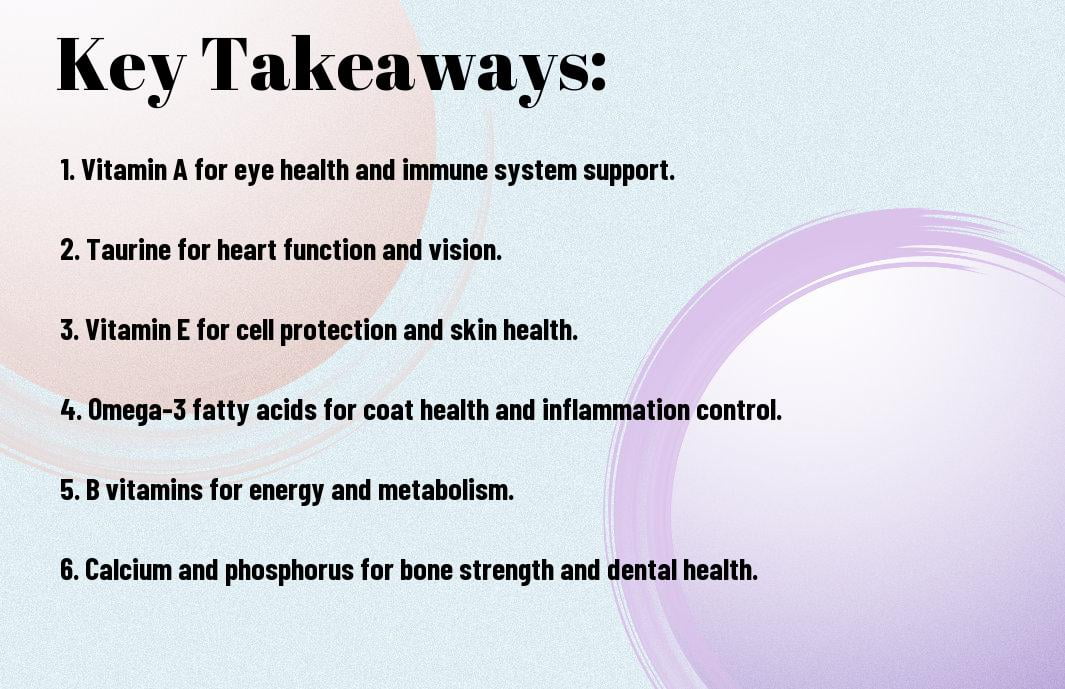
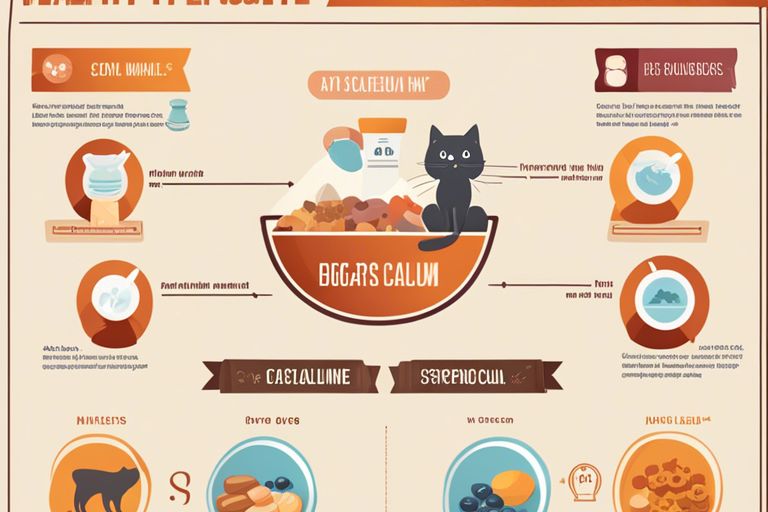
Understanding Cat Nutrition
Even though cats may seem like independent creatures, they rely heavily on their human companions to provide them with a balanced and nutritious diet. Understanding your cat’s nutritional needs is necessary to ensure their overall health and well-being.
The Role of Nutrients in Feline Health
The nutrients in your cat’s diet play a crucial role in maintaining their health and vitality. Proteins, fats, carbohydrates, vitamins, and minerals are all necessary for different bodily functions, from maintaining healthy skin and coat to supporting their immune system. It’s important to provide a diet that meets all of these requirements to help your cat thrive and prevent any potential health issues.
Differences Between Feline and Human Nutritional Needs
To understand the unique nutritional needs of cats, it’s important to recognize the differences between feline and human dietary requirements. Cats are obligate carnivores, meaning they require a diet high in animal-based proteins to meet their nutritional needs. Unlike humans, cats cannot efficiently convert plant-based nutrients into necessary vitamins such as vitamin A, making it crucial to provide them with a balanced diet rich in animal proteins.
It is necessary to note that cats also have specific requirements for amino acids like taurine, which are not found in high levels in plant-based foods. Taurine is necessary for maintaining healthy heart function and vision in cats, highlighting the importance of feeding them a diet tailored to their unique nutritional needs.
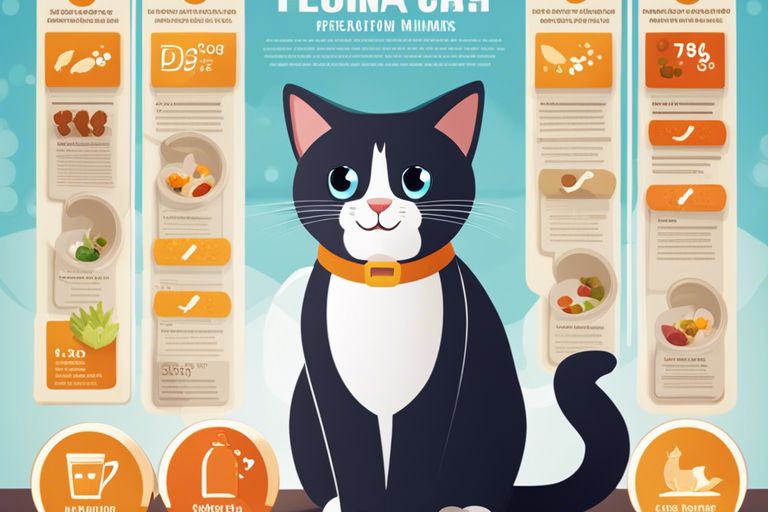
Essential Vitamins for Cats
While cats can obtain some necessary vitamins through their diet and sun exposure, there are certain vitamins that they need in specific quantities to maintain optimal health.
Vitamin A – Vision and Immune Health
Vitamin A is necessary for your cat’s vision and immune health. It helps maintain healthy vision, especially in low light conditions. Additionally, it plays a crucial role in supporting your cat’s immune system, helping to fight off infections and illnesses.
B Vitamins – Energy Metabolism and Nervous System
Any cat owner should ensure their pet receives an adequate amount of B vitamins, including B1 (thiamine), B6, and B12. These vitamins are necessary for energy metabolism, nerve function, and overall health. They help convert food into energy and support a healthy nervous system.
A well-balanced cat diet should include a sufficient amount of B vitamins to prevent deficiencies that can lead to issues like lethargy, muscle weakness, and neurological problems.
Vitamin C – Antioxidant Properties
Essential for its antioxidant properties, Vitamin C supports your cat’s immune system and helps combat the damaging effects of free radicals in the body. While cats can produce their own Vitamin C in small amounts, supplementing their diet with this vitamin can have additional health benefits.
Another important role of Vitamin C is its contribution to collagen production, which is necessary for skin, joints, and overall tissue health in cats.
Vitamin D – Calcium Absorption and Bone Health
Energy cats need Vitamin D to aid in the absorption of calcium, which is crucial for maintaining healthy bones and teeth. This vitamin also plays a key role in regulating the balance of calcium and phosphorus in the body, supporting overall bone health.
For instance, a deficiency in Vitamin D can lead to conditions like rickets or osteomalacia in cats, affecting their bone development and overall health.
Vitamin E – Reproductive Health and Muscle Function
Vision Vitamin E is vital for your cat’s reproductive health and muscle function. It acts as an antioxidant, protecting cells from damage, and is crucial for maintaining healthy reproductive organs and functions in cats. Additionally, Vitamin E supports muscle function and can help prevent muscle weakness or degeneration.
The proper amount of Vitamin E in your cat’s diet is necessary for overall well-being and ensuring proper reproductive health and muscle function.
Vitamin K – Blood Clotting
Health Vitamin K is crucial for your cat’s blood clotting process. It helps in the production of various proteins necessary for blood clot formation, preventing excessive bleeding in case of injury. A deficiency in Vitamin K can lead to prolonged bleeding and other serious health issues in cats.
Reproductive Ensuring an adequate intake of Vitamin K in your cat’s diet is necessary for maintaining their overall health and supporting normal blood clotting functions.
Crucial Minerals for Cats
Calcium and Phosphorus – Bone Structure and Metabolism
Metabolism of calcium and phosphorus is crucial for maintaining your cat’s bone structure and overall health. These minerals work together to ensure proper bone density and growth. Calcium helps in muscle function, nerve transmission, and hormone secretion, while phosphorus is necessary for energy production and cell membrane integrity.
Potassium – Muscle and Nerve Function
Metabolism of potassium is vital for regulating muscle contractions and nerve impulses in your cat’s body. This mineral helps maintain proper electrolyte balance, muscle function, and overall nerve health. A deficiency in potassium can lead to muscle weakness, lethargy, and abnormal heart rhythm.
With the right amount of potassium in your cat’s diet, you can ensure their muscles and nerves function properly, supporting their overall well-being and ensuring a healthy, active lifestyle.
Magnesium – Enzymatic Reactions
One crucial mineral for cats is magnesium, which plays a significant role in various enzymatic reactions within the body. It is necessary for energy production, protein synthesis, and muscle function. Magnesium also supports the immune system and helps maintain normal heart rhythm.
Potassium is vital for cats as it helps regulate enzyme activity and ensures proper cellular function, contributing to your cat’s overall health and well-being.
Sodium and Chloride – Electrolyte Balance
On top of that, sodium and chloride are necessary minerals for maintaining electrolyte balance in your cat’s body. These minerals help regulate fluid balance, muscle contractions, and nerve function. They play a vital role in maintaining blood pressure and supporting proper hydration levels.
Electrolyte balance is crucial for cats to ensure their cells function correctly and maintain optimal health. Including sodium and chloride in their diet is important for overall well-being and well-regulated bodily functions.
Iron – Oxygen Transportation in Blood
Sodium plays a key role in your cat’s diet as it is necessary for oxygen transportation in the blood. Iron is crucial for the production of hemoglobin, which carries oxygen to cells throughout the body. A deficiency in iron can lead to anemia and decreased oxygen delivery to tissues.
Transportation of oxygen in the blood is vital for your cat’s overall health and energy levels. Ensuring they have adequate iron in their diet can prevent anemia and support their oxygen-carrying capacity.
Zinc – Skin and Coat Health
Any deficiency in zinc can lead to issues with your cat’s skin and coat health. This mineral is necessary for wound healing, protein synthesis, and maintaining a healthy skin barrier. Zinc also plays a role in immune function and supports healthy coat growth.
For instance, maintaining optimal levels of zinc in your cat’s diet can help prevent skin problems and promote a shiny, lustrous coat. Including zinc-rich foods can support their skin and coat health, ensuring they look and feel their best.
Proper Food Choices for Your Cat
Commercial Cat Foods and Nutrient Profiles
To ensure your cat receives all the vital nutrients they need, it’s important to choose a commercial cat food that meets their specific dietary requirements. Look for products that are labeled as “complete and balanced” to ensure they contain the necessary vitamins, minerals, and proteins for your cat’s health. Consider consulting with your veterinarian to determine the best commercial food option for your feline friend.
Raw Diets and Homemade Food Considerations
To provide your cat with a raw or homemade diet, careful planning and preparation are vital. Raw diets can be nutritionally adequate for cats, but they require thorough research and supervision to ensure your cat receives all the vital nutrients they need. Homemade diets may lack important nutrients unless properly formulated with guidance from a veterinary nutritionist.
Commercial cat foods provide convenience and are formulated to meet your cat’s nutritional needs, making them a popular choice among cat owners. However, some pet owners prefer to feed their cats raw diets or homemade foods for various reasons, including potential health benefits and ingredient control.
Evaluating Food Quality and Labels
Quality and transparency in pet food labeling are crucial for making informed decisions about your cat’s diet. When evaluating food quality, look for specific ingredients such as named meat sources (e.g., chicken, beef) as the primary protein source. Avoid products that use generic terms like “meat by-products” or “animal digest” as these may not provide adequate nutrition for your cat.
Properly assessing the quality of your cat’s food involves understanding how ingredients are sourced and processed, as well as interpreting the information on the label. Take the time to research different brands, read reviews, and consult with your veterinarian to determine the best options for your cat’s specific needs.
Feeding Practices and Nutrient Absorption
Feeding Schedules and Portion Sizes
One of the most crucial aspects of feline nutrition is establishing a consistent feeding schedule and portion sizes. Cats are creatures of habit, and maintaining a regular feeding routine can help prevent digestive issues and obesity. It’s important to follow the feeding guidelines provided by your veterinarian or the pet food manufacturer to ensure your cat is receiving the right balance of nutrients.
The Significance of Water in Your Cat’s Diet
Diet plays a significant role in your cat’s overall health. Cats are obligate carnivores, meaning they have a low thirst drive and are designed to get most of their water intake from their diet. Providing wet food can help increase their water consumption and prevent issues like urinary tract infections and kidney disease. Fresh, clean water should always be available for your cat to drink.
Nutrient-rich foods are crucial for your cat’s health and well-being. If your cat is not getting enough water from their diet, they may become dehydrated, leading to a variety of health problems. Monitoring your cat’s water intake and adjusting their diet accordingly can help prevent dehydration and promote optimal health.
Interaction of Nutrients and Digestive Health
Schedules of feeding and the type of nutrients your cat consumes can greatly impact their digestive health. Cats require a diet that is high in protein and low in carbohydrates. The interaction of nutrients such as fiber, fats, and proteins plays a crucial role in maintaining a healthy digestive system. A well-balanced diet will support the growth of beneficial gut bacteria and help prevent issues like constipation and diarrhea.
Interaction between nutrients like probiotics and prebiotics can also promote a healthy gut microbiome, which is crucial for proper digestion and nutrient absorption. Providing a diet rich in crucial vitamins and minerals, along with high-quality proteins, will help ensure that your cat’s digestive system functions optimally.
Special Nutritional Considerations
Dietary Needs of Kittens Versus Adult Cats
Kittens require a diet that is specifically formulated to support their rapid growth and development. They need higher levels of protein, fat, and crucial nutrients like calcium and phosphorus to support their growing bones and muscles. It is crucial to feed kittens a specially formulated kitten food to ensure they receive the proper nutrition for their stage of life.
As cats transition into adulthood, their nutritional needs change. Adult cats need a balanced diet that provides the right amount of protein, fats, carbohydrates, vitamins, and minerals to maintain their overall health. It is crucial to switch to an adult cat food to meet their mature nutritional requirements.
Managing Special Health Conditions with Diet
On occasion, cats may develop specific health conditions that can be managed through diet. For example, cats with urinary issues may benefit from a special diet formulated to support urinary health. Cats with digestive sensitivities may require a diet that is easy to digest. Consulting with a veterinarian can help determine the best dietary approach to manage these health conditions effectively.
Supplements: When They Are Necessary
Adult cats typically do not require additional supplements if they are eating a complete and balanced diet. However, there are certain situations where supplements may be necessary, such as joint health or skin and coat issues. It is crucial to consult with a veterinarian before adding any supplements to your cat’s diet to ensure they are safe and beneficial for your cat’s specific needs.
Final Words
Taking this into account, it is crucial to ensure that your cat’s diet includes all the important vitamins and minerals they need to support their overall health and well-being. By providing a balanced and nutritious diet, you can help prevent nutrient deficiencies and maintain your cat’s optimal health.
Consult with your veterinarian to determine the best diet for your cat based on their age, breed, and health status. Recall, a well-rounded diet rich in important vitamins and minerals is key to keeping your feline friend healthy and happy for years to come.
FAQ
Q: Why are imperative vitamins and minerals important in a cat’s diet?
A: Essential vitamins and minerals play a crucial role in maintaining your cat’s overall health and well-being. They are necessary for various physiological functions and support their immune system, skin, coat, and more.
Q: What are some imperative vitamins that cats need in their diet?
A: Some imperative vitamins that cats need include vitamin A, vitamin D, vitamin E, and the B vitamins (B1, B2, B3, B5, B6, B7, B9, B12). Each vitamin serves a unique function and deficiency in any of these can lead to health issues.
Q: What are some important minerals that should be included in a cat’s diet?
A: Important minerals that should be included in a cat’s diet are calcium, phosphorus, magnesium, potassium, sodium, and iron. These minerals are imperative for bone health, muscle function, fluid balance, and more.
Q: How can I ensure my cat is getting all the imperative vitamins and minerals in their diet?
A: To ensure your cat is getting all the imperative vitamins and minerals, feed them a high-quality commercial cat food that is nutritionally balanced. Avoid feeding them homemade diets unless formulated by a veterinary nutritionist.
Q: What are the signs of vitamin and mineral deficiencies in cats?
A: Signs of vitamin and mineral deficiencies in cats may include poor coat quality, lethargy, weight loss, poor immune function, and various health issues. If you suspect your cat has a deficiency, consult with your veterinarian for proper diagnosis and treatment.
